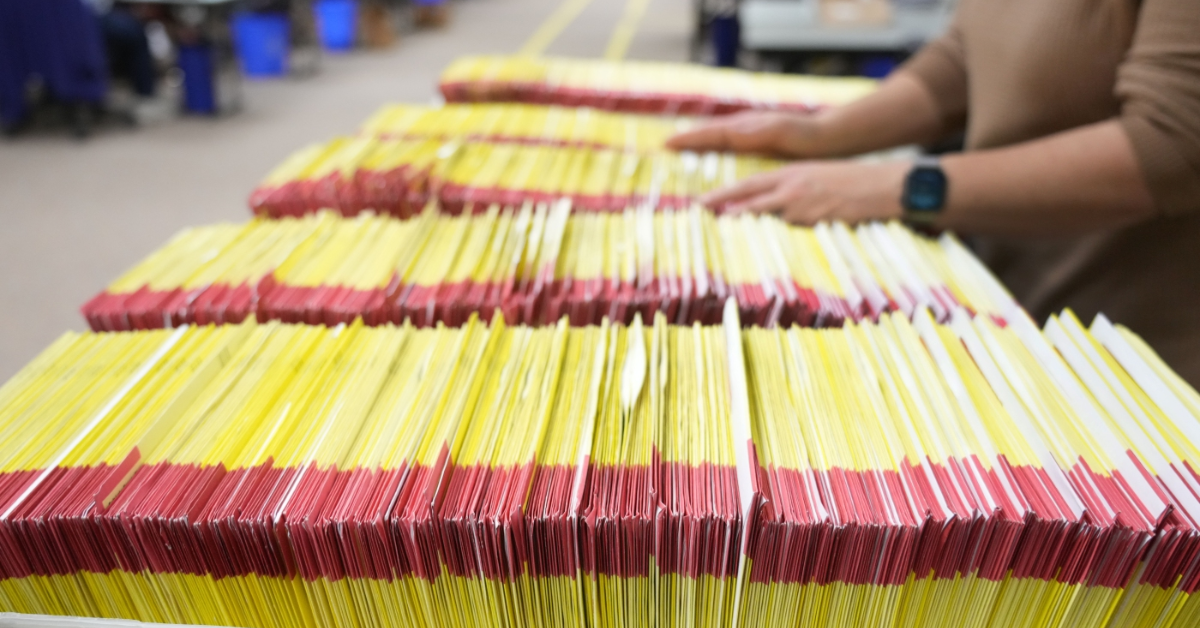In a move that could impact thousands of voters, Utah Governor Spencer Cox has recently signed a bill into law that makes significant changes to the state’s mail-in voting system. This new legislation has stirred up a mix of support and concern across the state, as it aims to tighten voting deadlines and reduce the window for mail ballots to be counted after Election Day.
Key Changes in Utah’s Voting Law
The most notable change introduced by the new law is the elimination of the grace period for mail-in ballots. In the past, voters who mailed their ballots by the day before Election Day could still have their votes counted if they arrived within a few days after the election. Under the new law, however, mail ballots will only be accepted if they are received by 8 p.m. on Election Day itself.

This change is part of a larger trend in several Republican-led states pushing to limit mail-in voting and speed up the counting process. Utah, which has historically been a leader in mail-in voting, is now shifting its stance, making it more difficult for some voters to have their ballots counted.
Why the Change?
Governor Cox and other supporters of the bill argue that these changes are necessary to ensure that election results are available sooner, reduce the time it takes to call races, and alleviate concerns over election transparency.
According to Cox, this move will allow most ballots to be counted on Election Night, which in turn would help media outlets report results faster. Cox stated, “There’s no reason we couldn’t do that. That’s just a choice we’ve made to allow a large number of mail-in ballots to come in after Election Day as long as they’re postmarked the day before.”
Supporters believe that faster results will increase public trust in elections, as delays and prolonged counting can sometimes lead to confusion or misinformation. However, there is no evidence of widespread election fraud in the U.S.
The Impact on Voters
While the new law intends to speed up election results, critics say it could make it harder for some voters to participate, particularly those who rely on the extended mail ballot deadlines. Barbara Smith Warner, the executive director of the National Vote At Home Institute, argues that eliminating the grace period could prevent thousands of voters from having their votes counted, especially if there are delays in mail delivery.
Warner also pointed out that in the 2024 election, nearly 2,000 Utah voters had their ballots postmarked by Election Day and received them in the three days after. Under the new law, these ballots would no longer be counted, which she believes will disenfranchise some voters.
In a state like Utah, where many residents live in rural areas far from polling places, mail-in voting has been a crucial way for people to cast their ballots. The Salt Lake Tribune reported that in the 2024 primary election, nearly 97% of Utahns voted either by mail or dropped off their ballots in drop boxes.
A Shift Away from Universal Mail Voting
In addition to the stricter deadlines for mail-in ballots, the new law also marks the end of Utah’s status as one of the few states that automatically sends mail ballots to eligible voters. Starting in 2029, voters will no longer receive a mail ballot unless they request one. This means that individuals will have to take the initiative to ask for a mail-in ballot if they wish to vote this way.
The change also includes a new requirement that voters provide identifying information when mailing back their ballots or dropping them off in drop boxes. According to the law’s proponents, these modifications are meant to increase security, but critics worry that these new procedures will complicate voting for some citizens.
The Argument for Election Security
Supporters of the bill, including state lawmakers, argue that the changes are necessary to enhance election security. They believe that tighter control over mail ballots will help prevent potential fraud and ensure that only legitimate votes are counted. However, voting rights advocates worry that these changes could disenfranchise vulnerable populations, including seniors and people with disabilities, who may face challenges with the new requirements.
A Broader Trend Across the U.S.
Utah’s new voting law is part of a broader movement among Republican-led states to limit mail voting and speed up election results. Similar changes were recently made in Kansas, and other states, such as West Virginia, are also considering measures to tighten mail-in voting rules. President Donald Trump also signed an executive order that mandates all states to only count ballots received by Election Day, though this order is expected to face legal challenges.
While proponents of these laws argue that they are necessary for ensuring the integrity of elections, voting rights groups warn that they could undermine public trust in the electoral system by making it harder for citizens to vote and by creating unnecessary barriers to participation.
What Happens Next?
As the 2024 elections approach, it remains to be seen how these new laws will impact voter turnout in Utah and other states that have passed similar legislation. Voter advocates worry that many Utahns will be caught off guard by these changes and that voter participation may decline.
For now, it’s clear that Utah’s voting landscape is shifting, and voters will need to stay informed about the new rules in order to ensure their ballots are counted.
Disclaimer: This article has been meticulously fact-checked by our team to ensure accuracy and uphold transparency. We strive to deliver trustworthy and dependable content to our readers.








